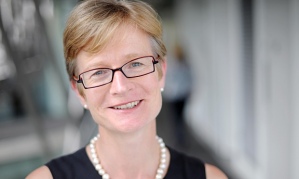M&S and Kingfisher lead charge for female board representation but executive quotas maybe needed to boost numbers of women in the boardroom
Congratulations to Marks & Spencer and Kingfisher, the owner of B&Q. The two retailers have not enjoyed the easiest time on the high street in the past five years, but they have led the way in the battle to increase female representation on Britain’s boards.
M&S and Kingfisher only rank sixth and third in the FTSE 100 in terms of the proportion of directors who are women, 41.7% and 44.4% respectively. However, they each have two full-time female executive directors which marks them out from their peers. M&S has Helen Weir, the finance director, and Laura Wade-Gery, the executive director for multichannel, while Véronique Laury and Karen Witts run Kingfisher as chief executive and chief financial officer.
For all the progress made by FTSE companies since the launch of the government-backed Davies review in 2010, women remain staggeringly unrepresented in the key decision-making roles at Britain’s top companies.
Lord Mervyn Davies set a target almost five years ago that 25% of FTSE 100 board members should be women, up from 12.5% at the time. That target has been reached – a major achievement – and the UK now ranks sixth in the world in terms of the number of women at the top of its leading companies. However, there is still much more to do.
The target has been reached largely by companies bringing in women to part-time non-executive roles. There are now 143 more female non-executive directors in the FTSE 100 than at the start of 2011.
However, there are just eight more female executive directors, which is unacceptable. This means that women make up just 9.6% of executive roles at FTSE 100 companies.
While the achievements of the Davies review must be applauded, the battle for gender equality within businesses can only really be achieved by an increase in the number of women executives. Hiring a woman who has prospered within another business to be a non-executive director is one thing, but creating a culture whereby women can rise up the ranks within a business to become an executive director is entirely another.
It is disappointing, therefore, that the Davies review has not yet set a target for the proportion of FTSE 100 executives who should be women. The CIPD has said this should be set at 20% at least.
To be fair to Davies, who is now stepping aside from his role at the helm of the campaign, he said he would strongly recommend to his successor that executive targets are introduced.
Britain has come along way since Davies started gathering evidence in the autumn of 2010. The approach of setting a voluntary target rather than implementing a legislative quota has made an impact.
But what happens next is vital. Britain’s leading companies must kick on towards a 50-50 representation and increase the number of female executives. If not, then calls for a quota system – used by most of the countries above Britain in the global legal table – will grow louder.
The western economy may be recovering from the financial crisis, but big business is not enjoying the ride.
Many of the world’s leading companies have reported results this week, with shrinking profits, job losses and cuts to capital expenditure a common theme.
On Thursday, Royal Dutch Shell, Barclays, and Deutsche Bank were the latest companies to post mixed results.
Varying reasons lay behind the results, including falling oil prices, regulatory issues and a slowdown in China, although some big businesses are still performing well, notably Apple, the biggest of them all.
It is a notable reversal of fortunes from a few years ago, when the US and European economies were struggling to bounce back from recession while big business were sitting on record cash piles.
Could we now be seeing the fruits of companies choosing to use that cash to keep their investors happy with dividends and share buybacks rather than investing it in their operations?
Bold BT, ahead of the curve?
One company that has invested heavily and is enjoyingthe rewards is BT. The company shocked analysts in 2012 when it first bought rights to buy Premier League football matches.
Since it moved into sports broadcasting, shares in BT have more than doubled. The company’s latest results show that an extra 106,000 customers signed up to its television service in the last three months, a record performance.
Gavin Patterson, BT’s chief executive, aided by his predecessor Lord Ian Livingston, is reaping the benefit of a bold move ahead of the curve. Patterson is now trying to do the same again, at an even greater cost, by buying mobile operator EE for £12.5bn.
by: http://www.theguardian.com/business/2015/oct/29/boardroom-equality-improves-few-women-occupy-key-roles


yify proxy
AntwortenLöschen